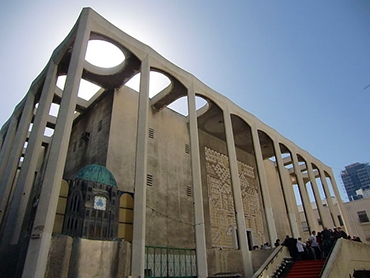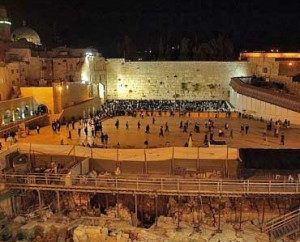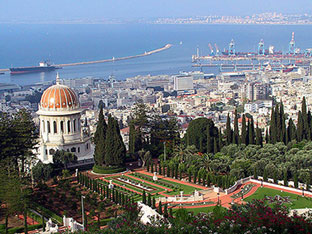Shabbat in Tel Aviv

Katrin Zirkel CC BY 2.5
Great Synagogue
Spending Shabbat in Tel Aviv
Tel Aviv is known as a secular city, especially when compared to Jerusalem. Nevertheless, if you are planning a Shabbat during your stay, it’s worth knowing a few things to help you enjoy your Shabbat in Tel Aviv.
Friday is a very busy and crowded day at the beach, restaurants and shops as many people don’t work on Fridays, and those who do usually finish around midday.
Shabbat starts at sundown on Friday and lasts until nightfall on Saturday night. You will notice life starting to gradually wind down in the streets and on the beaches as sundown nears on Friday evening. Many Israelis are traditional, if not religious, and will be at home for the beginning of Shabbat and for a family meal.
There is no public transport during the 25 hours of Shabbat – public buses and trains don’t run, but there are private cab companies operating all the time. Only non-kosher restaurants may be open. If you wish to arrange a kosher meal in a hotel in which you are not staying, check in advance about how to arrange this. Although some kiosks may be open, shops in general are not including supermarkets and pharmacy’s.

צילום:ד”ר אבישי טייכר CC BY 2.5
Ohel Moed Synagogue
Synagogues Tel Aviv
You may be surprised to realize how many synagogues and “shtieblech” (regular buildings used as synagogues) there are in Tel Aviv. If you stroll around Bialik Street on Shabbat, a street and area more famous for its former secular literary lifestyle, you may be surprised to see many Chassidim in their Shabbat finery with long black or gold coats and stately shtreimels (fur-trimmed hats), as both Belz and Gur Chassidim have synagogues and large enclaves in this area.
Great Synagogue Tel Aviv
The Great Synagogue on Allenby Street, built in the 1920’s, can’t be missed. The very imposing building with its huge dome was renovated in the 1970’s and features beautiful stained-glass windows that are replicas from European synagogues which were destroyed.
Ohel Moed Synagogue
This Tel Aviv synagogue, situated on Shadal Street, is one of the city’s first; it was inaugurated in 1931 at the initiative of the city’s Sephardic Chief Rabbi. It is famous for its spectacular blue-domed roof consisting of 15 rows of steps commemorating the 15 elevations in the Temple. It was at this synagogue that the richest and most important Sephardim in Tel Aviv used to pray.
The Beit Zunana or Libyan Synagogue has undergone several stages of metamorphosis. It was originally built in 1740; later it became a hostel for Jewish pilgrims arriving at the port, and has a mikveh (ritual bath) as well as a synagogue.
When the Jews were forced to leave Jaffa, the synagogue fell into disrepair and was taken over by the Arabs and even used as a soap factory at one point. But in 1948, after the War of Independence, it returned to its original use as a synagogue.
Shabbat in Tel Aviv: Did You Know?
The main thoroughfares of Rothschild, Allenby and Dizengoff are no–go areas for cars on Shabbat. The municipality decided that the time had come to “return some calm and sanctity to Shabbat” and give the local inhabitants a chance to stroll in peace, sit in the benches and parks in the center of the boulevards and enjoy the beautiful areas without the cacophony of traffic.








